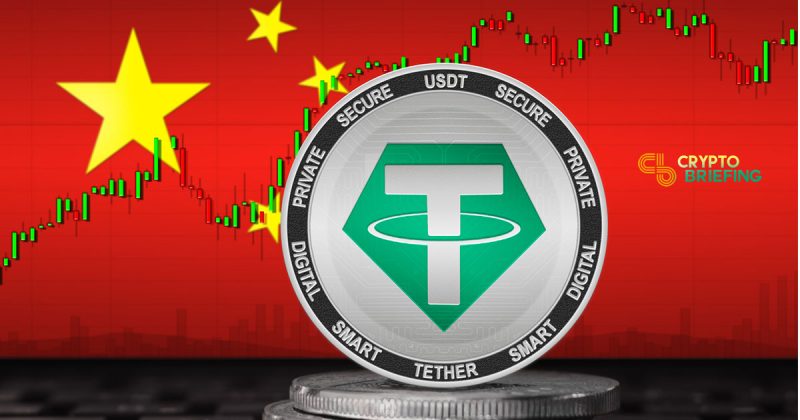Dillon Song: BaseFEX Lead Talks Futures, China And Tether

Share this article
China’s government may have a dim view of decentralization, but cryptocurrency trading continues. Crypto Briefing recently caught up with Dillon Song, Global Operations Manager at BaseFEX, a Beijing-operated crypto derivatives exchange.
Song, a marketing graduate from New York University, shared his views and insights regarding the digital asset trading market, and discussed the trajectory of the growing market for cryptocurrencies.
Crypto Briefing: Your company is about to launch the world’s first USDT-settled futures. Why do you think it’s a good idea to offer USDT-settled futures contracts?
Dillon Song: Bitcoin is the de facto currency in today’s derivative world, but its volatility makes it less suitable for the purpose. When you short BTC using BTC, you lose more than you should since your margin becomes less valuable along the way.
Stablecoins could be better than BTC due to their stability. This results in a product that is much easier to use, because it is more predictable, even for sophisticated, professional traders.
Additionally, we believe introducing a stablecoin-settled contract can remove some risk concerns among spot market traders, thus allowing the derivatives market to grow even bigger.
USDT has been involved in a series of legal troubles recently, but we don’t think that shakes its dominant position among stablecoins. So, far the market still trusts USDT. Its market position is still strong and from what we witness on the market, the recent troubles have not shaken the market’s trust.
Chinese cryptocurrency exchanges facilitate 60% of all USDT trading globally. In China, USDT is being used as substitute to USD. For example, tons of thousands of material trades Chinese businessmen have with their Russian business partners are being done with USDT across the China-Russia border. And so far, the Chinese market has seen no impact from what’s happening in New York.
CB: You’ve said that cryptocurrency-based futures trading will be as common and established as futures in the traditional financial markets. Why do you think this will happen?
Dillon Song: A new digital financial industry, with all aspects of the conventional financial industry, is emerging. There are tons of startups and organizations globally working on cryptocurrency-based retail transactions, retail banking, corporate banking, securities, insurance-related solutions, and others.
Crypto futures are just a part of this whole upcoming ecosystem. This ecosystem’s rise will be attributable to several factors.
The volatility and uncertainty of global politics undermine the stability of fiat currencies. The U.S.-China trade war, Korea-Japan trade war, and more directly, sudden inflation of national currencies such as what we have already witnessed in Turkey, Russia, and Venezuela.
If national fiat currencies are subject to political and geopolitical risks, people will flee to safe-haven assets, such as crypto, that won’t be affected by what’s happening in the White House.
Secondly, the development of technology calls for less involvement of physical currencies. This will allow digital currencies, including cryptocurrencies, to rise.
Finally, Bitcoin is being considered the ‘new gold’ because it’s similar to gold in many crucial ways. The limited supply and the efforts needed to mine that currency make BTC very similar to gold.
And finally, it is more convenient to transport, transfer, and store. The rest of the cryptocurrencies are like different kinds of precious metals. For example, Litecoin says it is the new silver. Just like precious metals, a whole financial system will build around cryptos because the progress of society needs it.
CB: The Chinese government is not particularly friendly toward cryptos. What is crypto trading currently like in China for local residents, and where do you see the industry a few years from now?
Dillon Song: The penetration of crypto in China isn’t as high as, let’s say, Turkey or Russia. The majority of the population doesn’t use it and are not familiar with it, even though they’ve heard of it.
Due to the crackdown a few years back, a lot of people think it is illegal, which it is not. Society at large still needs time to accept new things.
The ICO ban is still there, which is why most companies register offshore. But the industry itself is still growing at a rapid speed. New crypto/blockchain projects come out every hour, at the same pace with Silicon Valley and ‘Crypto Valley’, if not faster. No one thinks there will be another crackdown, and people are in general very optimistic about the future of the crypto industry in China.
China is and will always be a major force in the entire crypto trading scene. Many major exchanges are China-based or at least mainly China-based, such as Huobi, OKCoin, BitForex, BiBox, Gate,io, KuCoin.
Many traders have switched from forex trading, stock trading and commodity trading to crypto trading. And with the US-China trade war ongoing and of no foreseeable end, more people will jump on the boat because cryptocurrency, and bitcoin, are expected to rise. So I do foresee a steady future growth of the entire crypto trading community in China.
This interview has been edited for length and clarity.
Share this article
